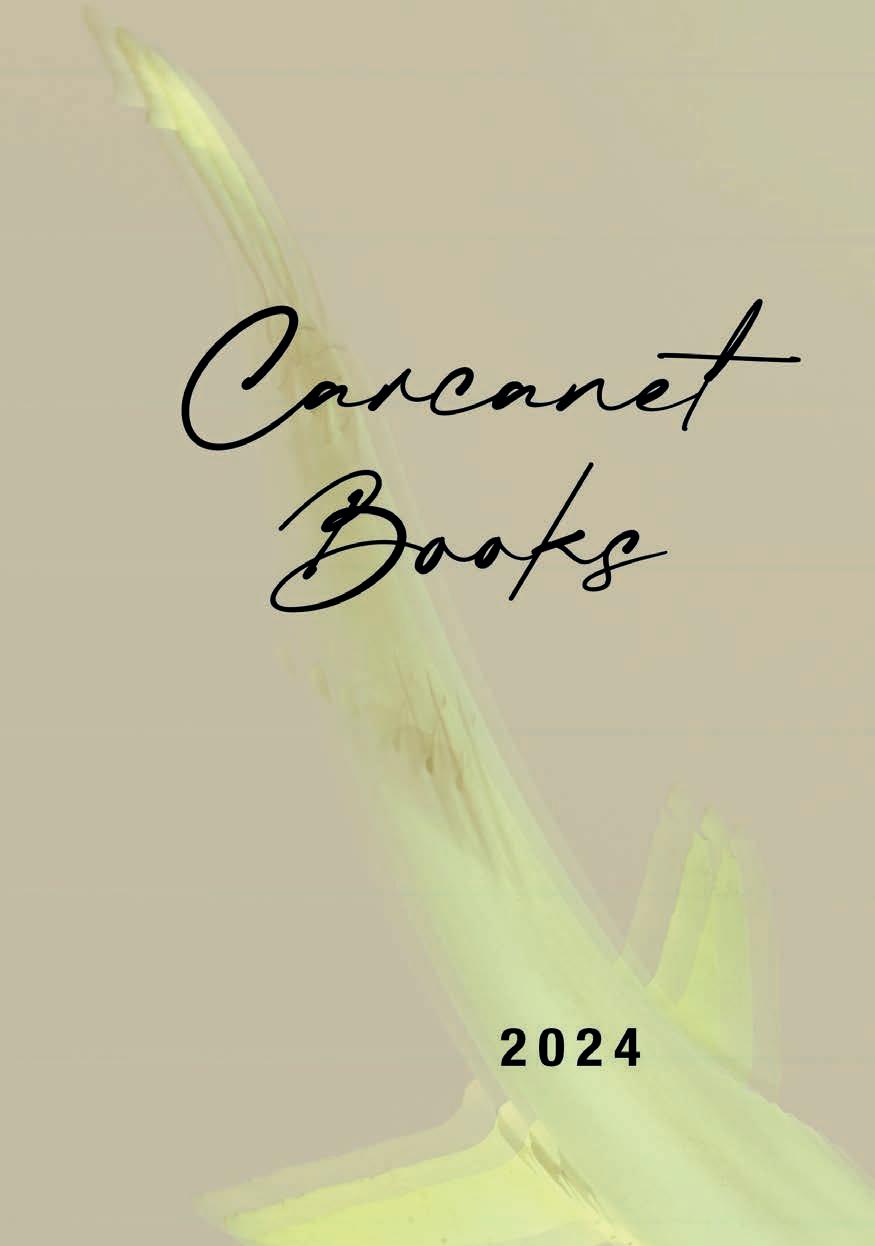
CARCANET PEOPLE
Managing and Editorial Director: Michael Schmidt, schmidt@carcanet.co.uk
Associate Publisher: John McAuliffe, john@carcanet.co.uk
Finance Director: Manda Mistry, manda@carcanet.co.uk
Sales and Rights Director, Deputy Managing Director: Alan Brenik, alan@carcanet.co.uk
Managing Editor: Andrew Latimer, andrew@carcanet.co.uk
Marketing and Events Manager: Jazmine Linklater, jazmine@carcanet.co.uk
Finance Manager: Holly Reynolds Holmes, accounts@carcanet.co.uk
TRADE TEAM
UK Sales Representation: Compass Independent Publishing Services, sales@compass-ips.london
UK Distributors: Combined Book Services (CBS), orders@combook.co.uk
US Distributors: Independent Publishers Group (IPG), orders@ipgbook.com
Ireland: Michael Darcy, Brookside Publishing Services, michael.darcy@brookside.ie
Central & Western Europe: Kemper Conseil Publishing, info@kemperconseil.nl
Spain & Portugal: Iberian Book Services, cprout@iberianbookservices.com
Cyprus, Greece & Turkey: Leonidas Diamantopoulos, bopper64@gmail.com
Eastern Europe: OBIBOOK, kinga@obibook.com
Nordic Countries: Melanie Boesen, melanie@post6.tele.dk
Australia & New Zealand: Woodslane Pty Ltd, info@woodslane.com.au
South Africa: Sula Books suzette@sula.co.za
All other areas, please contact Carcanet, below:
CONTACT
Carcanet Press Ltd
Floor 4, Alliance House
30 Cross Street
Manchester M2 7AQ
phone: +44 (0)161 834 8730
email: info@carcanet.co.uk
online: www.carcanet.co.uk
Subscribe to our weekly newsletter at www.carcanet.co.uk. Visit the Carcanet web store for all of our titles and offers.
Catalogue design by Andrew Latimer.
Carcanet Press receives financial assistance from Arts Council England.
2024 began for Carcanet with something of a bang. Five of our titles were singled out by the Poetry Book Society as Choice (Victoria Kennefick’s Egg/Shell), Recommendations (Gillian Clarke’s The Silence, Isabel Galleymore’s Baby Schema and Rachel Mann’s Eleanor Among the Saints) and Special Commendation (V.R. ‘Bunny’ Lang’s The Miraculous Season, ed. Rosa Campbell). Jason Allen-Paisant was awarded the T.S. Eliot Prize for Self-Portrait as Othello (2023), which also won the Forward Prize last year.
The media and critical responses to these events revealed how various the contemporary reception of poetry can be – at one pole engaged, curious, generous, grateful; at the other conventional. More conventional critics know they can count on those who share their distaste for the new and the unacceptable old. Stevie Smith, W.S. Graham and Charlotte Mew survived such reflex righteousness. We are making more space for the Other.
This catalogue includes some radical Anglophone recoveries – Bunny Lang, who restores balance and cheer to our New York poets’ list; and Julian Orde, a poet we should have taken on in the 1970s when she was first presented to us. Reading them now could have happy consequences for poets and poetry lovers. So should our newcomers, and Carcanet favourites whose prose and verse have already left their marks on the age. Voices of dissent and different awareness, from China (Bei Dao), Ukraine (Oksana Maksymchuk) and Mexico (Fabio Morábito) let welcome oxygen flow into our sometimes stuffy environments. It is wonderful, too, to have Frank Kuppner back in action with a distinctly hilarious trilogy; and Thomas A Clark bringing quite a different Scotland alive. Philip Terry guides us through a Purgatory relocated to Essex and inhabited by a large cast of surprises.
There is celebration: of the treasures of the Ryland Library, of the musical writings of Anthony Burgess, of Eavan Boland’s paradigm-shifting prose writing. And two novels in a single volume by Gabriel Josipovici... This is a catalogue with deep roots, but also with an array of wings, like the seraphim in Isaiah. And one cries unto another. There is dialogue, dispute; a chorus and a cacophony sound here, as is usual in Carcanet’s annual catalogues. Engage, enjoy!
 michael schmidt
michael schmidt
LETTER FROM THE EDITOR
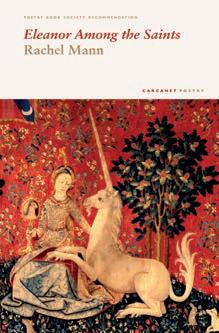
Eleanor Among the Saints
RACHEL MANN
CARCANET POETRY
96pp , £11.99
978 1 80017 3 811
• Poetry Book Society Recommendation Spring 2024
• Highly Commended in the Forward Prizes for Poetry 2020
• Shortlisted for the Michael Ramsey Prize 2019
In her second collection, Rachel Mann wrestles with the questions and possibilities raised when trans identity, spiritual faith, and the limits of myth and language intersect and are tested. Eleanor Among the Saints is a study in the queer joy found in counter-factuals and fantasy, shaped through the prism of the disputed story of Eleanor Rykener, a medieval trans woman, seamstress, and sex worker.
‘All poetry has something to do with bodies being transformed –whether in violence and grief, or in hope, in embrace, in miracle. Rachel Mann’s brilliant collection is about these transformations, realised for us here with exhilarating verbal energy and emotional subtlety, a poetry that is solid and fluid at the same time, as bodies are.’ – Rowan Williams
‘Rachel Mann weaves an intricate web of language to examine the intimate relationship between the transforming, transformative body, between sexuality and spirituality, between religious ecstasy, fear and love.’ –
Kim Moore
4 25 January 2024
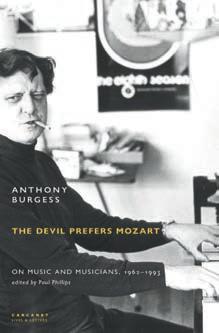
The Devil Prefers
Mozart
On Music and Musicians
ANTHONY BURGESS
edited by Paul Phillips
CARCANET CLASSICS
578pp , £30
978 1 80017 3 088
Long Blurb
Born into a family of musicians – his mother a music-hall singer, his father a pianist in silent cinemas – Anthony Burgess became interested in music at an early age. A composer long before he became a writer, he gained a wide knowledge of the classical repertoire from concertgoing at the Free Trade Hall while he was a student in Manchester before the Second World War.
In this flavoursome, entertaining collection of writings about music, Burgess reflects on the classical canon – with reference to Handel, Mozart, Beethoven, Wagner, Delius – and delivers opinions on twentieth-century practitioners, among them Stravinsky, Elgar, and The Beatles. Despite his reputation as ‘Godfather of Punk’ – bestowed by the Italian press following the release of Stanley Kubrick’s film version of A Clockwork Orange – Burgess is severe in his writing about Sid Vicious and The Sex Pistols. He provides an insider’s view of how music is made, reflecting on his own compositions for symphony orchestra, piano and guitar.
The Devil Prefers Mozart demonstrates the versatility of his nonfiction writing and confirms the extent to which music is at the heart of his creative life. The book supports Burgess’s claim that he was primarily a musician who also happened to be a writer. encountering his work for the first time.
5
25 January 2024
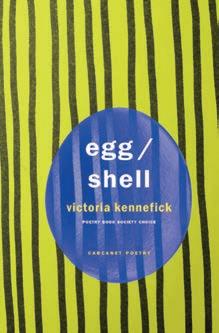
Egg/Shell
VICTORIA KENNEFICK
POETRY
120pp , £11.99
978 1 80017 383 5
• Poetry Book Society Choice Spring 2024
• Seamus Heaney First Collection Prize 2022
• Emerging Writer of the Year in the Dalkey Literary Awards 2022
• Shortlisted for the Derek Walcott Prize for Poetry 2022
‘It is hard to hurt and then explain the hurt away so as not to hurt anyone. But have you seen my life?’
(Child of Lir)
The lives that Victoria Kennefick evokes alter, shatter and recombine, emerging in stunning monologues, innovative hybrid forms and piercing lyrics: her second book Egg/Shell is a diptych, a double album, exploring early motherhood and miscarriage, the impact of a spouse’s gender transition and the dissolution of a marriage. Acclaimed as one of the boldest poetic voices to emerge in recent years, Kennefick, following up her best-selling Eat or We Both Starve, breaks new ground with generosity, emotional complexity and formal ingenuity.
‘Daring, visceral and replete with unsettling images... few collections arrest a reader with such intensity from the opening poem, and even fewer manage to hold that thrill over the course of many poems, but Kennefick’s does.’ – Seán Hewitt, Irish Times
6 29 February 2024
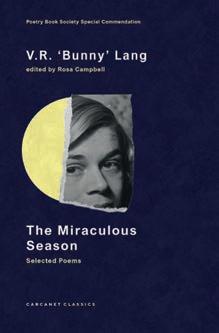
The Miraculous Season
Selected Poems
V.R. ‘BUNNY’ LANG
edited by Rosa Campbell CARCANET CLASSICS
232pp , £16.99
978 1 80017 337 8
• Poetry Book Society Special Commendation Spring 2024
In the archives of the Houghton Library at Harvard the incandescent work of V.R. ‘Bunny’ Lang (1924-1956) has survived. The American poet and playwright whose name was all but erased from literary history is now decisively back. The nerve centre of the literary scene around midcentury Harvard, founding member of the Poets’ Theatre in Cambridge, Massachusetts, best friend of New York School poet Frank O’Hara (he referred to her as ‘one of our finest poets’), Lang languished in the shadows too long, seen if at all only as O’Hara’s ‘muse’.
Long Blurb
The Miraculous Season brings into print her most startling, strange, and beautiful poetry, much of it never published before. She stands in the spotlight at last. Rosa Campbell’s introduction evokes Lang’s fascinating, often hilariously eccentric life and early death, and gives her back her rightful place in the canon of twentieth-century American poetry. Published in Lang’s centenary year, The Miraculous Season reveals the breadth and brilliance of her poetry, rediscovered and made available in print for the first time since 1975.
‘She is calling us long distance in these poems, telling us how it is with her, how bright things can be, how terrible things are. She was a wonderful person. She is one of our finest poets. We are so lucky to have something of her still!’ – Frank O’Hara
7
29 February 2024
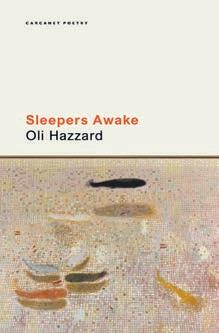
Sleepers Awake
OLI HAZZARD
POETRY
136pp , £12.99
978 1 80017 299 9
• Michael Murphy Memorial Prize 2013
Oli Hazzard’s third collection emerges from the daily disarray of care and work, nature and technology: ambitious, formally various poems and sequences extract ‘the ore / from boredom’, as memory – personal, familial, social, historical – and the collective memory of poetry itself are wrenched out of shape by disruptions in rhythm, space, and scale. The sadness and pain of forgetting are here too, alongside its unexpected potential:
‘remember how you forget’s more interesting than how you remember
what day, what name, what song, what what’
The title, borrowed from the Lutheran hymn that inspired a Bach cantata, catches the book’s dreamy, cross-temporal, kaleidoscopic dialogues. Sleepers Awake is satirical, tender and hopeful, allusive and intense, and its poems make spaces for intimacy with the reader, arguing ‘through an off-key melody / for the jovial texture of batshit relations, for the pleasure / of live-drawing in sceptical company’.
8 29 February 2024
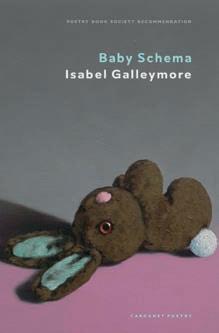
Baby Schema
ISABEL GALLEYMORE
POETRY
72pp , £11.99
978 1 80017 388 0
• Poetry Book Society Recommendation Spring 2024
• John Pollard Foundation International Poetry Prize 2020
‘Trees crawling with babies, babies darting through the sky or buoyed by thermal vents, babies painted with false eyes’ (Fable)
Long Blurb
In Isabel Galleymore’s second collection, the adorable other is not just an imagined future child, but also a tree frog, a weatherworn statue and often the speaker herself, who dreams of quitting adulthood and an endangered world. ‘Mother Earth’ is less an entity to be revered than a command to care-giving.
Lyrics and syllabically-constrained fables examine the play and power involved in creating new life, whether biologically or via cartoonists’ animation. Galleymore hones in on cuteness and its relationships to hyper-capitalism and environmental crisis to produce a deliberately queasy ecopoetics. Animal extinctions are likened to failed businesses and sainthood is granted to a dubious character named Michael Mouse. Studies of wild creatures join those of pets, pot plants and animal videos: here is a new nature – one shaped by the extremes of our contemporary desires.
9
28 March 2024
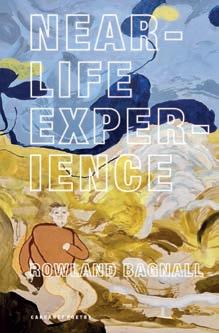
Near-Life Experience
ROWLAND BAGNALL POETRY
88pp, £11.99
978 1 80017 390 3
‘Strike up music! Scope tomorrow’s printless straits! I slice the tomatoes, saving their skins – their seeds freckle the countertop. No ideas but in No ideas but in things – tell me about it...’
The poems in Near-Life Experience are curious about the world, the present moment, its weather and animals, its objects and things. They want to make it real in language before it changes, vanishes. Documenting landscapes, paintings, insects, and trees, Near-Life Experience experiments in precision. Understanding is subverted by the day’s distractions and the unexpected shapes of the imagination. How do I relate to this? What does it mean? What’s happening, exactly? Does experience experience me? Description shapes into a different precision, the poet finds humour and panic at the changing edges of the actual. The poems include a variety of walkon parts– from Breughel’s hunters in the snow and American painter Richard Diebenkorn to 19th-century geologist James Hutton and the poet’s own friends and intimates. They measure his expanding and contracting times, birthdays, seasons, climate breakdown, witnessing the moment and its ‘sheer / ongoing changes’.
10 28 March 2024
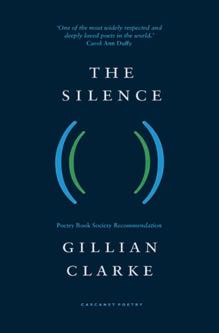
The Silence
GILLIAN CLARKE
POETRY
80pp , £12.99
978 1 80017 392 7
• Poetry Book Society Recommendation Spring 2024
• Queen’s Gold Medal 2011
Long Blurb
‘The days have no names. The day they count the dead, the day they closed the doors, turned off the lights.
We’re still here in the silence, hearing tree-talk, the wind’s secrets, the company of birds.’
‘The Year of the Dead’ and other poems in Gillian Clarke’s The Silence start in lockdown. Clarke listens so attentively to its silence that voices begin to emerge. Silence deepens as the book advances – in poems about her mother and childhood, the Great War and its aftermaths, and in her steady attention to Welsh places and names, and the rituals that bring that world into focus. These scrupulous, musical poems find consolation in how silence makes room for memory and for the company of animaland bird-life that surrounds us. Returning again and again to key images and formative moments, Clarke recalls other ways of living to the book’s present moment.
11
28 March 2024
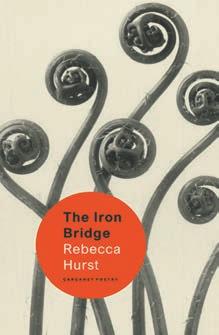
The Iron Bridge
REBECCA HURST
POETRY
128pp, £12.99
978 1 80017 394 1
• First Collection
Rebecca Hurst’s first collection bridges memory and observation, noting the detail of the natural world and our changing relation to it. The book’s places are made familiar by walking: it encounters other worlds alive with new and recovered ideas and images – from the folk traditions of her Sussex childhood, to archival encounters with a nineteenth-century nurse-explorer, and her undergraduate training as a Kremlinologist. Her language is deeply rooted, as keenly aware of etymologies as of history. Shaped by myth, history and desire, the poems of The Iron Bridge are theatrical, fierce, music-infused.
‘One of the great pleasures of these poems is the way in which [the world] is intimately known through precisely placed language.’
– Judith Willson
Rebecca Hurst is a writer, opera-maker, and illustrator, based in Greater Manchester. She is the author of a poetry pamphlet The Fox’s Wedding (Emma Press, 2022), and contributed poems to Carcanet’s New Poetries VIII.
12 28 March 2024
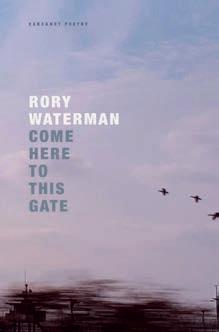
Come Here to This Gate RORY WATERMAN
POETRY
96pp, £11.99
978 1 80017 314 9
• Shortlisted for the Ledbury Forte Poetry Prize for Second Collection 2019
• Shortlisted for the Seamus Heaney Award 2014
Come Here to this Gate, Rory Waterman’s fourth collection, is his most candid and unexpected, personal, brash, hilarious, and wide-ranging. The book is in three parts, the first a sequence about the last year of the life of his father, the poet Andrew Waterman, against a backdrop of recrimination, love and alcoholic dementia: ‘your silences were trains departing’. The second consists of poems that open various gates, or are forcibly restrained behind them, from the literal North and South Korean border to the borders between friends, and those imposed by photographs, memories, and paths taken and not taken. The third opens on the poet’s rural home county of Lincolnshire. He rewrites several folk tales into galloping, sometimes rambunctious ballads for the 2020s: what happens when imps, ghosts, and a boggart who looks like a ‘doll left behind at Chernobyl’ must reckon with the modern world and the people that lumber through it.
Rory Waterman was born in Belfast and grew up mainly in Lincolnshire.
25 April 2024
13
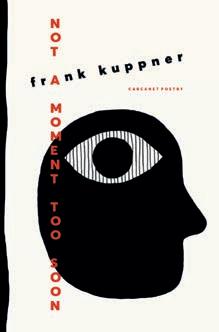
Not a Moment Too Soon
FRANK KUPPNER POETRY
128pp , £12.99
978 1 80017 398 9
• Scottish Arts Council Book Award 1984, 1997
• McVitie’s Scottish Writer of the Year 1995
• Creative Scotland Award 2003
Frank Kuppner’s new (eleventh) book consists of three long, hilarious, philosophical, existential sequences, ‘The Liberating Vertigo of a Final Passage of Meaning’, ‘Not Quite the Greatest Story Never Told’ and ‘Not Quite a False Fresh Start’. Those ‘not quites’ are a keynote – what might have been and what actually is, the gap between being the space of the poem, its ironies, humour and wry heartbreak. The poems in the sequences are short, reminding us of his first book, A Bad Day for the Sung Dynasty, where short ‘orientalising’ forms were first perfected. 216 poems through the second sequence, he interrupts himself with, ‘[I have almost said enough.]’ But that’s just short of the half of it.
‘Points weaved together/to make myself’ – these are the points of each poem, haiku or tanka or something else, the weave being uneven and richly suggestive. Words fill out unexpectedly, the ubiquitous Stars become Sta[i]rs. His subject matter is what lies beyond the window of his rented room: the world is an erotic and philosophical minefield; he is rather too fitful and feverish to relish it for what it is, but what it might be and might have been...
25 April 2024
14
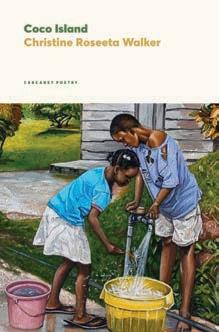
Coco Island
CHRISTINE ROSEETA WALKER
POETRY
96pp , £11.99
978 1 80017 400 9
• First Collection
‘This is the law of paradise: something taken for something given.’
Christine Roseeta Walker’s first book is set entirely in Negril, Jamaica. Coco Island presents a compelling cycle of poems, attentive to the undertow and hidden forces that shape a place and its people. In narrative poems, in songs, in fables, in comic scenes, ghost stories and vivid character sketches – especially of girls and women – Walker artfully lays bare how economic necessity, religious belief, illness and addiction reach far into the structures of family life and community. Piecing together the isolated lives of those left behind as the island modernises, her fearless, memorable poems chart the devastation of a world.
‘Not least among the achievements of Christine Roseeta Walker’s work is an enviable kind of literary alchemy. Her poems transmute the stuff of a Jamaican childhood and heritage into a language which both invites and quietly disturbs.’ – Rachel Mann.
25 April 2024
15
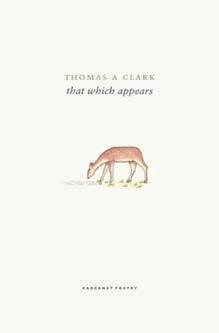
that which appears
THOMAS A CLARK
POETRY
360 pp , £19.99
978 1 80017 385 9
• Shortlisted for Scottish Poetry Book of the Year 2021
• Longlisted for The Laurel Prize 2021
• Shortlisted for the Saltire Society Poetry Book of the Year Award 2017
that which appears gathers together four book-length sequences; The Hundred Thousand Places, Yellow & Blue and Farm by the Shore, all previously published by Carcanet, plus the title book, that which appears, published by Paragon Press (1994).
The poems emerge from a practice of walking in the varied landscapes of the highlands and islands of Scotland. They attempt to attend and respond to the evidence, to ‘snow on moss on stone’, with ‘small continual adjustments’.
A conviction grows that environmental damage can only begin to be repaired by many careful and repeated acts of attention. How can we move here with resourcefulness and least intrusion? Can poetry be generous in response while subject to an ethic of care for place and particularity? Can it provide spaces that will allow for, that welcome and celebrate, that which appears?
16 25 April 2024
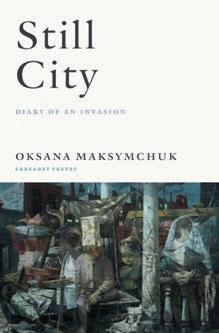
Still City
Diary of an Invasion
OKSANA MAKSYMCHUK POETRY
128pp , £12.99
978 1 80017 402 3
• Scaglione Prize 2023
• American Association for Ukrainian Studies Translation Prize 2023
Still City includes some ninety poems. They register the changing sense of time, mortality, and responsibility in a world at war and reflect on the private and communal experiences of living in circumstances of extreme and unpredictable transformation. Inevitably, there are dramatic shifts in perspective: this Diary of an Invasion recreates the mood, tone, and valence of the context within which a poet’s imagination must make sense of the change.
Long Blurb
Drawing on various sources, including social media, the news, witness accounts, recorded oral histories, photographs, drone video footage, intercepted communication, and official documents, Maksymchuk tells the shared experience. The book began ‘as a poetic diary I started keeping while living in my hometown of Lviv, Ukraine in 2021-22. In the months leading up to the full-scale invasion, my writing has been registering how ways of living, thinking, and feeling have been changing due to the anticipation of a catastrophe, imbuing the everyday rituals with the sense of finality and precarity. While we, as a family and a community, made preparations for air strikes, as well as nuclear, chemical, and biological warfare, our relationships transformed, as did our sense of time, fate, and personhood.’
17
30 May 2024
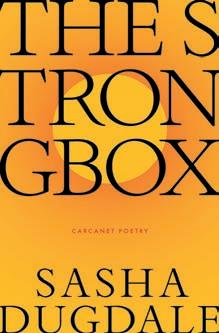
The Strongbox
SASHA DUGDALE
POETRY
128pp , £12.99
978 1 80017 408 5
• Poetry Book Society Winter Choice Award 2017
• SoA Cholmondeley Award 2017
• Forward Prize for Best Single Poem 2016
‘my glasses are salty I am full of fluster I send you a wave my semblable – my sister.’
The Strongbox shifts the focus of heroic epic to the abducted and displaced, and the human cost of war throughout the ages. It opens with a kidnapped woman in a desolate land, and ends with the Rape of Europa. Drawing in elements of Greek mythology, classical epic and current wars, Sasha Dugdale’s protean and modernist work gives voice to the experiences of those individuals who have never been part of the historical narrative, and as a consequence have developed wilful versions of their own.
Through a series of contemporary and ancient scenes, different verse forms, dialogues, dreams, the poet traces the role of myth in shaping our accounts of historical and recent events. She uses her work as a translator to embed aspects of classical Russian, British Romantic and twentieth-century poetry into the text.
30 May 2024
18
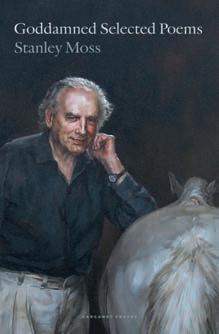
Goddamned Selected Poems STANLEY MOSS
POETRY
220pp , £16.99
978 1 80017 404 7
A couple of years ago Stanley Moss renewed his driver’s license. Now in his late 90s, his license runs to his 104th year. He has produced such an immense volume of work in his long life that it seemed necessary for his readers, old and new, to essentialise this mass of work into a portable, liftable single collection of highlights, which these 220 pages represent. It has been hard to confine him to this limiting measure because he still, every week and sometimes every day, produces a wholly new poem, surprising his editor and also, always, himself. As he says in ‘The Ocean Slaps my Face,’
‘Yes, Poseidon, you may call me the F-word, I’m a fluke and flounder. I am a rogue wave, I am a rouge wave!’
‘Undaunted, outrageously alive,’ Rosanna Warren said, ‘Moss flaunts more colours than the Grim Reaper ever dreamed of, laughs in his face, rhymes with abandon, makes a joyful noise unto the Lord, and struts with Baudelaire.’ He asks what John Ashbery called ‘unthinkable questions, but when he formulates them, they take on the quiet urgency of common daylight’.
30 May 2024
19
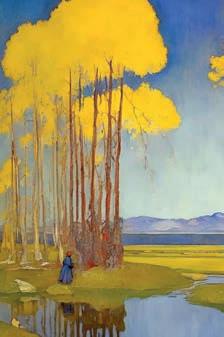
Ambush at Still Lake
CAROLINE BIRD
POETRY
96pp , £11.99
978 1 80017 412 2
• Forward Prize for Best Collection 2020
• Shortlisted for the Costa Poetry Award 2020
• Shortlisted for The Polari Book Prize 2021
Caroline Bird’s new poems show us the ambush of real life that occurs in the stillness after the happy ending. This is a collection about marriage, lesbian parenthood, addiction and recovery in which a recurring dream is playing out: a world where mums impale themselves on pogo-sticks, serial killers rattle around in basements, baby monitors are haunted by someone else’s baby and, through it all, love stays and stays like a stationary rollercoaster that turns out to be the scariest, most thrilling ride in the amusement park.
Her publisher responded to the book in these terms: ‘It is bleak, repellent and hilarious in an American Psycho-ish way. Hectic and vivid.’
‘Vegetable crisps. The words yawned like a black-hole, sucking my eyes backwards into my head until I saw my own brain glowing like a radioactive cauliflower.’ 20
27 June 2024
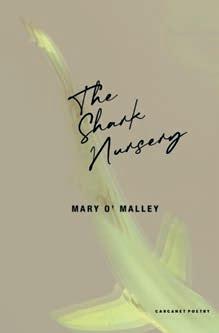
The Shark Nursery
MARY O’MALLEY
POETRY
96pp , £11.99
978 1 80017 414 6
• Éigse Michael Hartnett Poetry Award 2018
The Shark Nursery consists of three interlocking parts: poems arising directly from lockdown, poems about lives lived in an online reality, and animal poems. The animal poems draw on the rich tradition of animals in Irish poetry and myth. From the wolf’s touch to the rat’s tweet, animals and fish refuse to accept the roles human beings impose on them. The rat tells us his ancestor was famous for eating the vellum of the Book of Leinster and helping us to date it. This is based on analyses of droppings found on old manuscripts for the purposes of dating and authentication. No-one thanked him, he says, not even a mention in a footnote. The animals find new language in the face of contemporary perils.
In a space before noise begins tigers visit cities and a white leopard sits on a lawn in Suburbia. In the strange, almost hermetically sealed world portrayed in the ‘Ballad of Googletown’ – an eerie, genuine ballad, where the familiar tropes and refrains of ballad are hung out to dry – lives are lived online, virtually no social interaction is necessary:
‘...cars are in the drive
And the bees are in the hive
They say the kids are safe inside
In Googletown’
27 June 2024
21
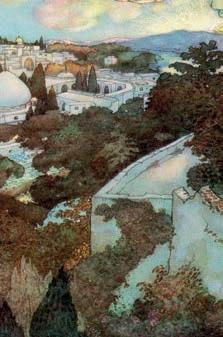
From Base Materials
JENNY LEWIS
POETRY
96pp , £11.99
978 1 80017 416 0
From Base Materials is rich and various in its occasions. It ranges thematically from violence towards women, love in old age and surviving cancer, to translations from Arabic and Russian and a topical re-imagining of the Rubaiyat of Omar Khayyam. The poems speak of formation and transformation, of the struggles of the human spirit to transmute ‘base matter’ and to accept mortality and the frailty of the flesh with courage and compassion. Around a third of the verses from the Rubaiyat are in concrete shapes underlying the themes of ephemerality (hourglasses) and craftsmanship (pots and vessels) which capture the wry urbanity and rough humour of the throng of voices from the past whose thoughts and observations are now believed to have ‘composed’ this best-loved of poems.
For the long poem, ‘Love in Old Age’, Jenny Lewis says: ‘Although it addresses a lover, it is really about multiple experiences of love (both real and imagined) throughout a long life and how I am as much a literary construct as a human individual. I have drawn on literature that has shaped me, including the Epic of Gilgamesh, early Celtic nature poetry and hermit poetry and, more recently, feminist writings such as those of Hélène Cixous.’
27 June 2024
22
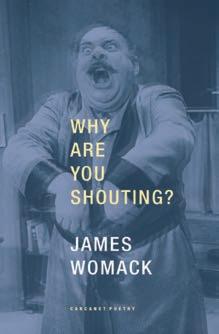
Why Are You Shouting?
JAMES WOMACK
POETRY
128pp , £12.99
978 1 80017 453 5
• Longlisted for the Read Russia Prize 2018; Shortlisted 2020
• Shortlisted for The Ledbury Forte Poetry Prize 2018
• Longlisted for The International Dylan Thomas Prize 2018
Long Blurb
Why Are You Shouting?, James Womack’s fourth Carcanet collection, thinks about two things in particular: our struggle as individuals to find connections between ourselves, with friends, family and lovers, and the efforts we make as groups to connect to the environment we live and die in. Written in the shadow of the climate crisis and the pandemic years, the poems set out to find points of hope and solidarity, against a common backdrop of disruption and collapse to which we are often wilfully blind.
Alongside these concerns runs a narrative of personal blindness and self-enchantment, a willingness to allow oneself to be misled in order to have a quiet life. If the collection’s title suggests that raising one’s voice is the readiest way to reach other people, the poems themselves dare to offer quieter solutions, too: there is space for humour and kindness, even a degree of positive thinking about the state the world is in.
The ghost of Cassandra, the Trojan princess given the gift of prophecy but condemned to have no one believe her words, haunts the collection: her life is a warning, but also an antidote to willed ignorance.
23
25 July 2024
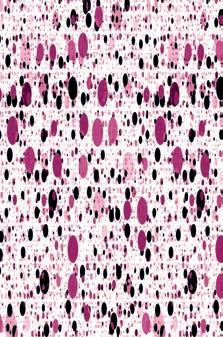
Polkadot Wounds
ANTHONY (VAHNI) CAPILDEO
POETRY
128pp , £12.99
978 1 80017 425 2
• Shortlisted for The Jhalak Prize 2022
• Poetry Book Society Choice 2021
• Longlisted for The BOCAS Prize for Caribbean Literature 2020
Polkadot Wounds is full of the jumbled delight, frustration, restlessness and continuity of trying to live a connected and creative human life in our times. Capildeo’s poetry flourishes as part of a conversation with other writers (dead and living) and other people. Here, travelling widely and working on commissions produces glimpsing reflections of events and encounters.
The title of the book is drawn from a phrase in the opening poem, commissioned by the Charles Causley Trust, and inspired by the stones of the ruined Norman castle in Launceston, Cornwall, as well as by the wounds depicted in the honey-coloured wood statue of the local martyr, St Cuthbert Mayne.
Polkadot Wounds is in three sections. The first thinks with and through landscapes, using the earlier spelling ‘landskips’ to invoke traditions of English-language travel writing, and the playful idea of skipping. The second section plays off Dante’s Divine Comedy. Dreams, grief, and the occasional breakthrough of joy appear as if in the corner of the eye; other scenes play out in more pointilliste fashion. This section is inflected by untimely deaths, during the pandemic and in queer and overseas communities. The third section gets a grip on transformations of self.
25 July 2024
24

Sidetracks
BEI DAO
translated by Jeffrey Yang
POETRY
144pp , £14.99
978 1 80017 427 6
Sidetracks, Bei Dao’s first new collection in fifteen years, is also his first long poem and undoubtedly his magnum opus – the artistic culmination of a lifetime devoted to the renewal and reinvention of language. ‘As a poet, I am always lost,’ he once declared. Opening Sidetracks with a prologue of heavenly questions and following on with thirty-four cantos, the poem travels forward and backward along the divergent paths of the poet’s wandering life. From his time as a Young Pioneer in Beijing, the poem roves through the years of exile living in six countries, back to the rural construction site where he worked during the Cultural Revolution, to the ‘sunshine tablecloth’ in his kitchen in Davis, California and his emotional visit home after a thirteen-year separation (‘the mother tongue has deepened my foreignness’). The various currents of our times rush into his lifelines, reconfigured through the ‘vortex of experience’ and the poet’s encounters with friends, strangers, and with other artists living and dead. He moves from place to place unable to return home.
As the poet Michael Palmer noted, ‘Bei Dao’s work, in its rapid transitions, abrupt juxtapositions and frequent recurrence to open syntax evokes the un-speakability of the exile’s condition. It is a poetry of explosive convergences, of submersions and unfixed boundaries, “amid languages”.’
25 July 2024
25
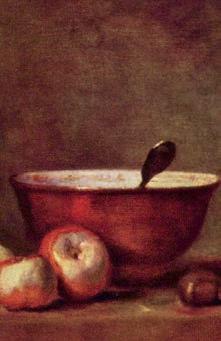
Apple Thieves
BEVERLEY BIE BRAHIC POETRY
96pp , £11.99
978 1 80017 429 0
• Alastair Reid Pamphlet Prize 2019
• Poetry Book Society Recommendations 2012 and 2016
• Forward Prize for Best Collection finalist 2013
• Scott Moncrieff Prize for Translation 2013
‘I love paintings that give us glimpses of ordinary people in rooms that open to other rooms,’ says Canadian poet Beverley Bie Brahic. Apple Thieves is full of such painterly moments and their mystery. ‘Why this moment, not another one?’ she asks in ‘Root Vegetables’, one of several poems about human migrations, ‘Was famine too abstract for the children we were?’
This new collection from an award-winning poet and translator evokes the pleasures of nature, art, and the body, writing with affection, and tenderness for human fragility. Today, living in France, she delights in history’s ‘pissed-on stones’, bells that chime the ‘rich hours of each day’, and ‘the look in early spring / Of fields turned over / Earth well-fucked. . .’. Apple Thieves relishes the earthbound in all its sensuousness: ‘You should eat it hot,’ ‘Blackberry Clafoutis’ suggests, ‘Directly from the oven / Though it will still be good / For breakfast, left over’.
29 August 2024
26
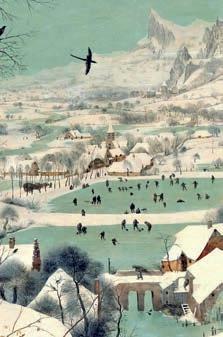
Partita and A Winter in Zürau
Two novels by
GABRIEL JOSIPOVICI
CARCANET FICTION
192pp , £14.99
978 1 80017 431 3
In Partita, Gabriel Josipovici’s precipitate novel, Michael Penderecki is in flight. Someone has threatened to kill him. He is surrounded by sinister questions. Who is the woman dead in the bathtub? Is she really dead? Why does the voice of Yves Montand singing ‘Les Feuilles d’Automne’ emerge from the horn of an antique phonograph in an otherwise silent room in a villa in Sils Maria? Why are the sentences so short and the movement so fast? Josipovici’s most melodramatic and enigmatic fiction to date, Partita is as though one of Magritte’s paintings had come to life to the rhythms of a Bach partita.
In the longer piece, A Winter in Zürau, the protagonist is also in flight: Franz Kafka, diagnosed with tuberculosis in 1917, in his thirtyfourth year, escapes from Prague to his sister’s smallholding in Upper Bohemia. He leaves behind, he hopes, a dreaded office job, a domineering father, his fiancée Felice and any thoughts of marriage, and the hothouse literary culture of his native city. Free of that, he hopes finally to make sense of his life and his strange compulsion to write stories which, he knows, will bring him neither fame nor financial reward. This is not conventional fiction; it is a critical, biographical inquiry into eight crucial months in Kafka’s life, months of anguish and reflection that resulted in the famous Aphorisms.
29 August 2024
27
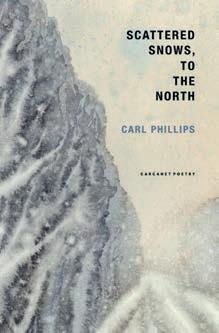
Scattered Snows, to the North
CARL PHILLIPS
POETRY
64pp , £11.99
978 1 80017 433 7
• The Pulitzer Prize For Poetry 2023
Carl Phillips’s Scattered Snows, to the North is a collection about distortion and revelation, about knowing and the unreliability of a knowledge that’s rooted in (always unstable) human memory. If the poet’s recent books have been engaged with the theme of power, this one focuses on vulnerability: the value of embracing it and thus of releasing ourselves from the compulsion to understand our past. If we remember a thing, did it really happen? If we believe it didn’t, does that make our belief true? In Scattered Snows, to the North, Phillips looks though the window of the past in order to understand the essential sameness of the human condition—’tears were tears,’ mistakes were made and regretted or not regretted, and it mattered until it didn’t, the way people live until they don’t. And there was also joy. And beauty. ‘Yet the world’s still so beautiful… Sometimes it is…’ It was enough. And it still can be.
Then the War: And Selected Poems 2007–2020, Phillips’s first UK publication, won the 2023 Pulitzer Prize for Poetry. He is the author of sixteen books of poetry and three prose books, most recently My Trade Is Mystery: Seven Meditations from a Life in Writing (Yale University Press, 2022). After more than thirty years of teaching at Washington University in St. Louis, he now lives on Cape Cod, Massachusetts.
29 August 2024
28
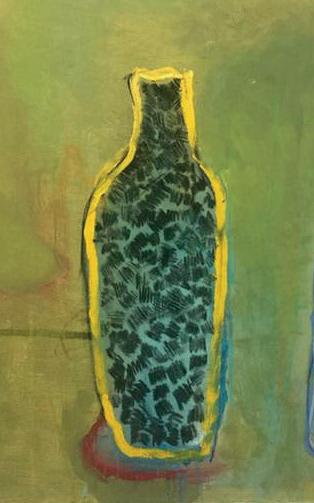
• Costa Poetry Award 2020
Citizen Poet
New and Selected Essays
EAVAN BOLAND
edited by Jody Allen Randolph & others
CARCANET CLASSICS
440pp , £25.00
978 1 80017 170 1
• Irish PEN Award for Literature 2019
• Bob Hughes Lifetime Award 2017
• Shortlisted for the T.S. Eliot Prize 1994
• Lannan Foundation Award in Poetry 1994
At her death in 2020, Eavan Boland left a formidable body of work –poems and prose. Together they transformed Irish poetry and had a considerable impact throughout the English-speaking world. She was also a major feminist thinker and essayist. She challenged and changed Irish culture and society, and her challenge remains potent. This collection of her most important essays combines autobiographical and critical reflections on the events and influences that shaped her life and work. It includes work never before collected, as well as draft chapters of the memoir Daughter that she was working on when she died.
The book, published on what would have been Eavan Boland’s 80th birthday, opens with substantial extracts from Object Lessons: the life of the woman and the poet in our times (1995), including the key essays ‘Outside History’ and ‘The Woman Poet: Her Dilemma’. From A Journey with Two Maps: becoming a woman poet (2011) the editors have selected the title essay and ‘Becoming an Irish Poet’, ‘Domestic Violence’ and the celebrated ‘Letter to a Young Woman Poet’.
24 September 2024
29
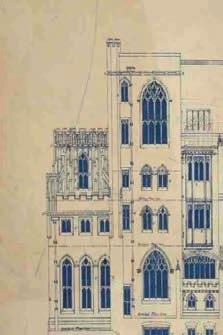
Library Lives
A Constellation of Books and Objects from the Rylands
STELLA HALKYARD
LIVES AND LETTERS
224pp , £16.99
978 1 80017 437 5
• Marking the 125th anniversary of the John Rylands Research Institute and Library
Library Lives: a constellation of books and objects from the Rylands plots the lifelong love affair between one particular bookworm and the John Rylands Library in Manchester, its collections drawn from every corner and period of the textual and meta-textual world. How do we read – and what can we read from – a potsherd, a locket, a fragment of papyrus, a gorgeously illuminated medieval manuscript, an envelope, a seemingly ordinary book?
Stella Halkyard, one of the library’s erstwhile archivists, tells the life stories of some of this great library’s previously unsung treasures and provides radical new readings for a few of its acclaimed gems. In a sequence of idiosyncratic and often playful short essays she celebrates the resonance of these objects and their ability to tell stories that range across time and place, from the Ancient Egyptian Book of the Dead, to John Donne’s shroud, eighteenth-century Chinese papermaking, Elizabeth Bishop’s letters, plastic surgery in sixteenth-century Italy, the lining of Walt Whitman’s hat, and Delia Derbyshire’s wartime gas mask. Selected from Halkyard’s popular ‘Pictures from a Library’ and ‘Archive Corner’ features published in PN Review over the last two decades, these essays have been brought together for the first time and put into productive dialogue with each other. 30
26 September 2024
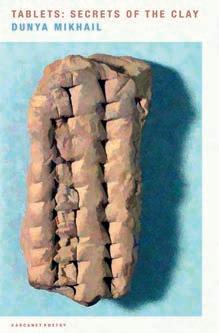
Tablets
Secrets of the Clay
DUNYA MIKHAIL
POETRY
128pp , £12.99
978 1 80017 439 9
• Poetry Book Society Autum Wild Card Selection 2019
• UN Human Rights Award for Freedom of Writing 2001
Tablets: secrets of the clay transforms the world’s first letter symbols, cut onto clay tablets, into matters of our modern everyday life. The poems are accompanied by drawings inspired by the ancient Sumerian images. These short poems, which can be read as Iraqi haiku, invoke an urgent wisdom beyond their original borders. In her author’s note, Dunya Mikhail writes: ‘At this moment, I am writing to you using tablets such as the computer or iPad or phone. If I were living in the time before writing, I would express my thoughts to you using clay tablets. I would draw my ideas the way my Sumerian ancestors used to do thousands of years ago. In fact, that’s exactly what I tried to do in this book. I imagined myself living in that time with no language, and yet had to express my poems through drawing. Not knowing how to draw was good for me because these drawings are supposed to be primitive and thus in harmony with the spirit of those simple signs in their first communication with the world. After all, those ancestors of mine were not all of them artists. I like to think that they were ordinary people who revealed themselves through symbols they inscribed on caves and clay tablets. I am fascinated by those codes because they were poetical, although unintentionally so.’
26 September 2024
31
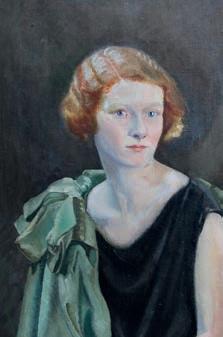
Conjurors
Poems
JULIAN ORDE
edited by James Keery CARCANET CLASSICS
144pp , £14.99
978 1 80017 455 9
‘Listen you others:
I was lit by the flint and steel of my love on Tuesday, Sparked into love, Giant-strode over the streets and mastered the wheelways, Could see in a round, Yes, and time, opening and shutting its pleats like a fan, Waited for me…’
from ‘An Experience on Tuesday’
In Conjurors, a major poet is revealed for the first time. Julian Orde (1917–74) published only in magazines during her lifetime. She was a key figure in the Carcanet anthology of the mid-century, Apocalypse (2020), but this is her first collection, presenting more than sixty poems, with a biographical and critical introduction. Orde’s poetry was selected for reading and discussion during the Zoom launch of Apocalypse by Simon Armitage and has attracted considerable attention. Closely associated with W.S. Graham, and influenced by his poetry, Orde has a distinctive voice very much of her own, and was warmly appreciated by William Empson: ‘Wonder at nature, wonder at all experience, is her note, and she gets a great deal of variety into it; also she has a beautiful ear, and a supply of unforced humour.’ Her lyrical surrealism will draw a wide readership.
26 September 2024
32
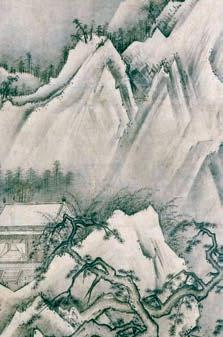
Here They Come!
200 tankas delivering goodness fresh to your doorstep!
JOHN GALLAS POETRY
128pp , £12.99
978 1 80017 443 6
• Winner of the Wells Festival Literature Prize 2023
• St Magnus Festival Orkney Poet 2016
‘Everything is like life’ – Mr Omer, David Copperfield
This epigraph hovers over Here They Come! as it does over all the astonishing experimental work of the New Zealand poet John Gallas. And by ‘everything’, he means everything. This collection has no Great Purpose, apart from exploring and expanding upon the contradictory Meanings of Life. In a pyrotechnic display of thirty-one-syllable sparkles, set off by accident and protracted by design, it lights up any corner of things done, thought, felt, seen, suffered and enjoyed. It is contagious: readers begin tankaing as soon as they close the book. A walk in the country will never be the same.
Here the writer, barely in control, stands back at a safe distance and watches, mostly with a smile. Here, the reader is the quarry. Contradictions abound, ideas morph, preferences and amusements change – no thoughtful guide is available, but none is needed: crazy and merry variety make this collection amenable to all, especially when all have not quite made up their minds about what on earth is going on. Warning: there are love poems lurking here.
31 October 2024
33
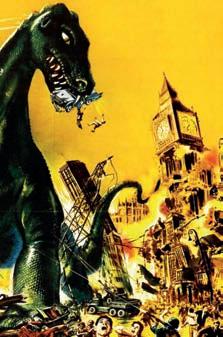
Dante’s Purgatorio
PHILIP TERRY
POETRY
220pp , £16.99
978 1 80017 445 0
• Society of Authors’ Travelling Scholarship Award 2015
• Shortlisted for The Goldsmiths Prize 2013
A sequel to Philip Terry’s Dante’s Inferno (2014), where Dante relocates to the University of Essex, here the action shifts from Dante’s Island of Purgatory to Mersea Island, in Essex still. Dante’s Virgil is substituted with Ted Berrigan as guide. The poet and Berrigan climb a mountain made out of Flexible Rock Substitute (FRS). Dante’s artists are replaced with contemporary artists and artists-in-residence on the Essex Alp, including Grayson Perry, Rachel Whiteread and Damien Hirst. Hirst, an example of pride, is encountered not carrying a rock on his back, as in Dante, but carrying a washing-machine, a Siemens Avantgarde, which runs through its spin-cycle as he carries it. Other characters encountered include Christopher Marlowe, Boris Johnson, Nigel Farage, John Paul Getty, Hilary Clinton, Allen Ginsberg, Samuel Beckett, Martin McGuinness, Ezra Pound and Ciaran Carson. On the final terrace, the poet, accompanied by Berrigan and poet Tim Atkins, passes through a wall of flames to reach Dante’s Paradise, here modelled on the Eden Project, where the poet meets his Beatrice, Marina Warner. The poem comes to a climax with an interview with Marina Warner in the LRB Tent, followed by a gig from the Pogues, for which Shane MacGowan has been brought up from Hell on an Arts Council ‘Exceptional Talent’ scheme.
31 October 2024
34
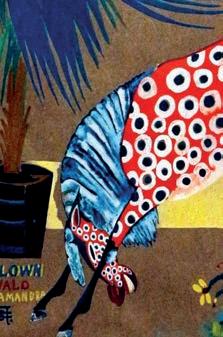
Emotional Support Horse
CLAUDINE TOUTOUNGI
POETRY
96pp , £11.99
978 1 80017 447 4
• The Ledbury Munthe Poetry Prize for Second Collections 2021
This tragi-comic, or comi-tragic grief journal blends loss and low vision into poems that issue in startling joy. Emotional Support Horse tracks the course of a lived bereavement intensified by sight loss and eco-stress. But wit is not only an element of style, it is a state of imagination, and it leads out of dark depth into the region of joy.
A woman longs to metamorphose into Nicola Walker in a cop car, or a Hungarian Viszla or just to find an equal footing with her doctor. Personal and planetary fractures blur in the vivid, dreamlike pages that turn and speak to anyone who has stood at that crossroads of confusion and rupture. In part soulful, in part self-help, the poems veer between droll and despairing, their swings from high to low and back again reflecting the self adrift on a choppy sea. A self, however, never alone but accompanied throughout by a host of other species.
From earthworms to wolfhounds, flamingos to Konic ponies, the world of Emotional Support Horse glints with light and life, plumbing sorrow’s depths even as it stumbles upon solace.
35 31 October 2024
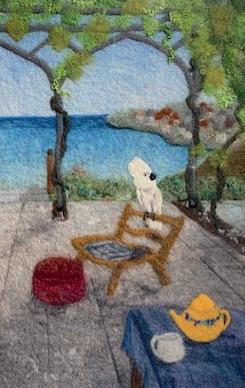
Collected Poems
MIMI KHALVATI
POETRY
224pp , £18.99
978 1 80017 333 0
• King’s Gold Medal for Poetry 2024
Mimi Khalvati, one of our best-loved poets, was born in Tehran, Iran, and sent away to boarding school on the Isle of Wight at the age of six, only returning to Iran and being with her family for a couple of years when she was seventeen. The loss of her native country, culture and mother tongue formed the bedrock of her ‘adoptive’ love of the English language and its lyric tradition. ‘But,’ she writes, ‘whether drawing on my few memories of Iran, my long years living in London and travelling in the Mediterranean, or on that central void always present in my life, I have celebrated the richness of a life that can be lived without a clear sense of heritage, family history or personal biography.’
That wealth is reflected in the wide variety of style, tone and architecture in her Carcanet poetry collections over thirty-three years – free and metrical verse, ranging from short, fixed forms to extended lyrical sequences, from ghazals to the heroic corona or book-length series of sonnets. Whatever the form, the writing is always in service to the language and open-ended quest of each poem, never to predetermined subject matter or idea. ‘I hope the poems speak especially to those who have made their homes wherever the tide has brought them, sometimes in language itself, and to those who have no story but place their trust in the flux and flow, the vision of the lyric moment,’ she says.
36 28 November 2024
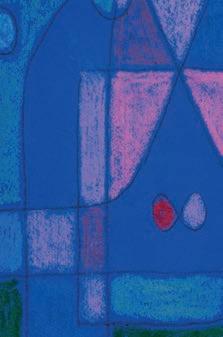
One Little Room
PETER M C DONALD
POETRY
96pp , £11.99
978 1 80017 449 8
• Shortlisted for the London Hellenic Prize 2017
The poems in One Little Room enter and explore confined spaces in history and personal memory. The spaces prove not to be as small as they seem from the outside: they expand and interconnect to produce new and dazzling perspectives out of the limits of concentrated meditation and formal shape alike.
Long Blurb
Poems inhabit the surroundings of a Belfast childhood, pushing these into dimensions where time and space play tricks on memory and circumstance. Boxes, lost travelling trunks, and small volumes enclosed in the dark are transformed into bright gateways to freshly-imagined realities. Public and private histories undergo radical reconstruction in the sequence ‘Centenary’, where a hundred years of Northern Ireland and the century since the birth of the poet’s father coincide to produce a different kind of history; a series of discursive poems addressed to different women mark, like standing stones, the book’s developing engagements with past, present, and future. From Harry Houdini in a milk-churn to the French poet St. John Perse in the same room with Hitler; from Emerson in New England to Yeats at Rosses Point and Omaha Beach; and from the work on free paraphrases of the Psalms to the work done in a carpet-fitter’s cutting room in the 1970s, poems here repeatedly turn confinement inside-out. In this, his eighth collection, Peter McDonald effects transformations of memory and history, loss and love.
37
28 November 2024
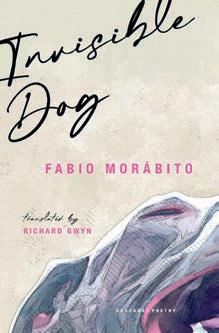
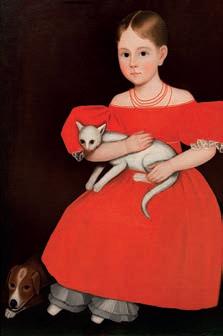
Invisible Dog
FABIO MORÁBITO
translated by Richard Gwyn
POETRY
144pp , £12.99
978 1 80017 451 1
Fabio Morábito is one of Mexico’s best loved and most entertaining contemporary writers, his narratives marked by a humane irony and a philosophical resignation to the vagaries of his society and the irresistible tyrannies of time. Some of his poems make the reader laugh out loud, and Richard Gwyn’s translations are true to the tone and manner of the originals. This is the first collection of his poems to appear in English, putting right a significant omission.
The fifty-four poems in Invisible Dog were selected by the poet and translator in collaboration and draw from his five published collections spread over four decades. Readers enjoy a comprehensive introduction to his work in breadth and depth. His formal and thematic developments illuminate the wider context of modern Latin American writing, its inventive playfulness, its evasion of conventions of ‘national culture’. Morábito’s position as a poet writing in a second language contributes to his unique voice and vision. It is possible in these versions to detect elements of the poet’s ‘foreignness’ in his straightforward lexical choices, which have the effect of making the poems somehow vulnerable, as in ‘Journey to Pátzcuaro’, a sort of allegory for the immigrant experience.
38 28 November 2024
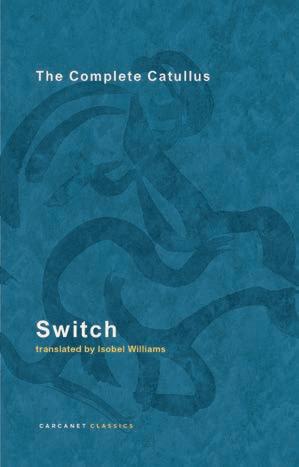
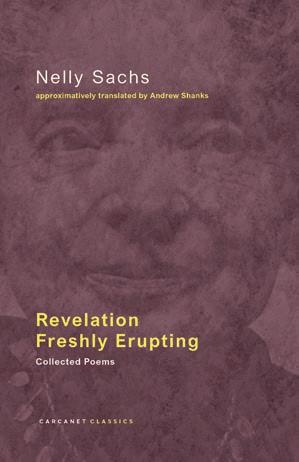
Recent and Forthcoming Titles
The Miraculous Season , V.R. ‘Bunny’ Lang, ed. Rosa Campbell
Citizen Poet: New and Selected Essays , Eavan Boland
Sea-Fever: Selected Poems , John Masefield, ed. Philip Errington
Revelation Freshly Erupting , Nelly Sachs, ed. Andrew Shanks
Backlist Highlights
Switch : the Complete Catullus , translated by Isobel Williams
The Lascaux Notebooks , Jean-Luc Champeret, ed. Philip Terry
The Owner of the Sea: Three Inuit Tales Retold , Richard Price
Poems and Satires , Edna St Vincent Millay, ed. Tristram Saunders
The Barbarians Arrive Today , C.P. Cavafy, ed. Evan Jones
Songs We Learn from Trees: Ethiopian Amharic Poetry
carcanet classics
ROWLAND BAGNALL 10 CAROLINE BIRD 20 EAVAN BOLAND 29 BEVERLEY BIE BRAHIC 26 ANTHONY BURGESS 5 ROSA CAMPBELL 7 ANTHONY (VAHNI) CAPILDEO 24 THOMAS A CLARK 16 GILLIAN CLARKE 11 BEI DAO 25 SASHA DUGDALE 18 JOHN GALLAS 33 ISABEL GALLEYMORE 9 RICHARD GWYN 38 STELLA HALKYARD 30 OLI HAZZARD 8 REBECCA HURST 12 GABRIEL JOSIPOVICI 27 JAMES KEERY 32 VICTORIA KENNEFICK 6 MIMI KHALVATI 36 FRANK KUPPNER 14 V.R. ‘BUNNY’ LANG 7 JENNY LEWIS 22 OKSANA MAKSYMCHUK 17 RACHEL MANN 4 PETER MCDONALD 37 DUNYA MIKHAIL 31 FABIO MORÁBITO 38 STANLEY MOSS 19 MARY O’MALLEY 21 JULIAN ORDE 32 CARL PHILLIPS 28 PAUL PHILLIPS 5 JODY ALLEN RANDOLPH, et al 2 9 PHILIP TERRY 34 CLAUDINE TOUTOUNGI 35 CHRISTINE ROSEETA WALKER 15 RORY WATERMAN 13 JAMES WOMACK 23 JEFFREY YANG 25 Visit the Carcanet web store for all of our titles and offers www.carcanet.co.uk Subscribe to our journal PN Review www.pnreview.co.uk

 michael schmidt
michael schmidt






































